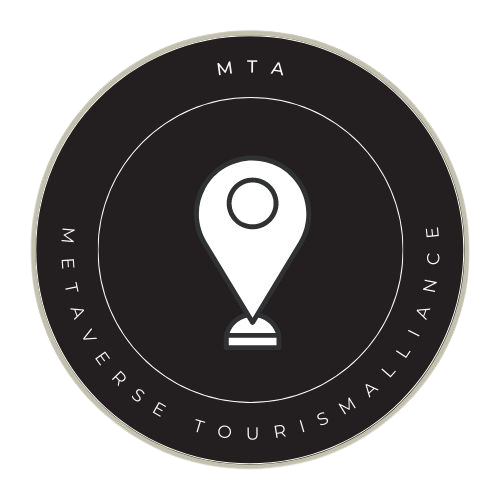Traveling is one of life’s great adventures, offering opportunities to explore new cultures, taste exotic cuisines, and create cherished memories. Yet, as much as it’s about excitement, travel also carries responsibilities, especially in the context of safety and sustainability.
In today’s world, it’s crucial for hospitality professionals and tourists alike to prioritize safety while being sustainable abroad. This article explores the art of lengthening the customer journey with pre-travel metaverse experiences, equipping travelers with the knowledge and mindset for safe, eco-conscious adventures.
Preparing for the Journey: Safety Training in the metaverse
Before embarking on any adventure, it’s essential to be well-prepared. Safety training in the metaverse prior to your journey is a way to ensure that as a tourist you are taking all of the precautions needed when in an unfamiliar location. It may encompass various features, including:
Emergency Preparedness: Understanding what to do in case of natural disasters, accidents, or medical emergencies is vital. Travelers should be familiar with evacuation routes, local emergency services, and how to communicate in a foreign language if necessary.
Health and Hygiene: Promoting good health practices, such as vaccinations, hygiene routines, and medical insurance, can prevent illnesses and ensure a worry-free trip.
Cultural Sensitivity: Learning about local customs, traditions, and taboos helps travelers avoid unintentional disrespect or misunderstandings, contributing to a more harmonious experience.
Transport Safety: Knowing the safest modes of transportation and how to use them, from public transit to ride-sharing services, enhances overall travel safety.
The metaverse provides a place to create realistic simulations of a wide range of scenarios, from natural disasters to medical emergencies. The metaverse allows trainees to experience these situations in a virtual but lifelike setting, providing invaluable hands-on experience without real-world risks.
Training anywhere/anytime
The metaverse provides a way to offer and avail of pre and post travel training anytime and from anywhere in the world.
Traditional safety training often relies on physical simulations or role-playing, which can be costly and limited in scope. In contrast, the metaverse offers accessibility to a wide range of trainees, enabling them to participate from anywhere with an internet connection. Moreover, trainees can repeat simulations as often as needed, reinforcing their knowledge and skills.
The provider can also customize there training based on a specific location. Each tourist destination has its unique safety challenges. This adaptability ensures that safety training is relevant and effective, whether it’s for a coastal resort, mountain lodge, or urban hotel.
A good example of a beneficial training program for all hospitality professionals is the emergency response procedure. This may be for an airline, a hotel, a conference venue or an activity centre. Responding to emergencies swiftly and efficiently is crucial in the tourist industry. Metaverse simulations can replicate real-time emergency scenarios, helping staff practice and refine their response procedures, such as evacuation plans, first aid, and communication protocols.
Another relevant topic of training before a travel experience is by doing some cultural sensitivity training. In an increasingly globalized world, being a tourist often involves interactions with people from diverse cultural backgrounds. The metaverse can provide cultural sensitivity training by immersing trainees in virtual environments that mimic real-world cultural scenarios, enabling them to navigate interactions with respect and understanding.
By harnessing the power of the metaverse for safety training, the tourist industry can create a safer and more resilient environment for all.
Sustainability Abroad: Practicing Responsible Tourism
The hospitality industry has made significant strides in recent years to embrace sustainability and reduce its environmental footprint. The virtual worlds in the metaverse offer boundless possibilities. It’s essential for the industry to consider how practicing sustainability in a digital realm can benefit both businesses and the planet.
How do you learn about eco-friendly resorts? How can you be more sustainable when travelling abroad? Are there ways to manage your carbon footprint? What is recycling like where I am travelling too? How do you measure your carbon footprint?
These are just a few of the questions you may be asking yourself as a greener tourist or somebody that is conscious of the impact tourism has on the wider environment. The metaverse now provides spaces to educate around these issues. Via the metaverse tourism providers can conduct virtual workshops, seminars and exhibitions to impart knowledge of sustainability practices.
Meet customer expectations with Data-Driven Insights
In the metaverse, data collection and analysis are extensive. Tourist organisations can gather insights on behavior, preferences, and trends, allowing them to tailor their sustainability efforts to meet customer expectations more effectively.
It also fosters collaboration between businesses, researchers, and sustainability experts. This collaborative environment encourages the development of innovative solutions and sustainable practices within the industry.
Showcasing Sustainability Initiatives
Hotels and venues can use the metaverse to showcase their existing sustainability initiatives, from energy-efficient practices to waste reduction efforts. This transparent approach can attract environmentally conscious guests and partners.
Sustainable travel is a growing movement aimed at preserving our planet while also exploring it. As the trend continues to grow there are ways to facilitate and encourage tourists to be more sustainable abroad. Using the metaverse eco-friendly resorts and activities can showcase there green commitments prior to any escape.
They can also demonstrate energy-efficient practices and prepare tourists for there stage. The beauty of these virtual worlds is that you can use entertainment to stimulate scenarios designed to have a positive impact. For example, why not create a game on your virtual property to give points to players who reduce, reuse and recycle or use a metaverse platform to introduce the local wildlife. This helps tourists to prioritize conservation and is also educatinal. Another big problem with mass tourism today exists around respecting local economies. Using the metaverse tourist agencies can pinpoint where local produce is available and how tourists can contribute directly to the communities they visit.
Conclusion
In a world where safety and sustainability are paramount, it’s essential for hospitality professionals and tourists to work together to create positive and responsible travel experiences. By integrating safety training with sustainable practices and leveraging pre-travel metaverse experiences, travelers can embark on their journeys with confidence, empathy, and a commitment to preserving our planet. Travel becomes not just an adventure but a transformative force for good, benefiting both the explorer and the world they explore.

